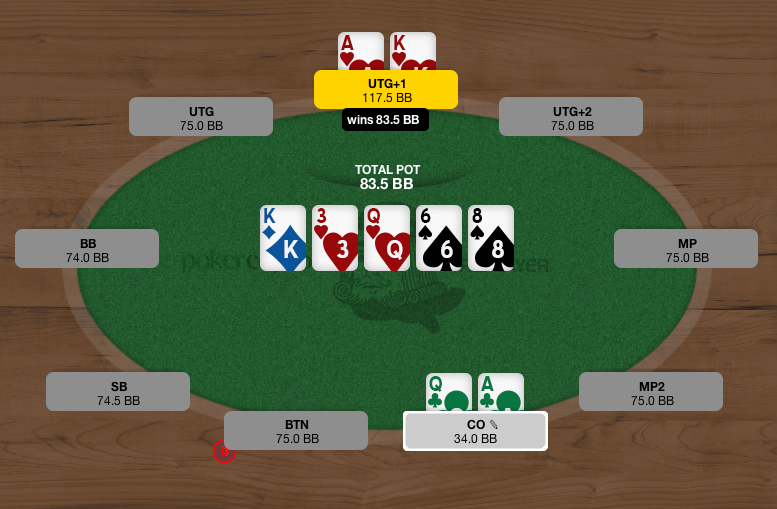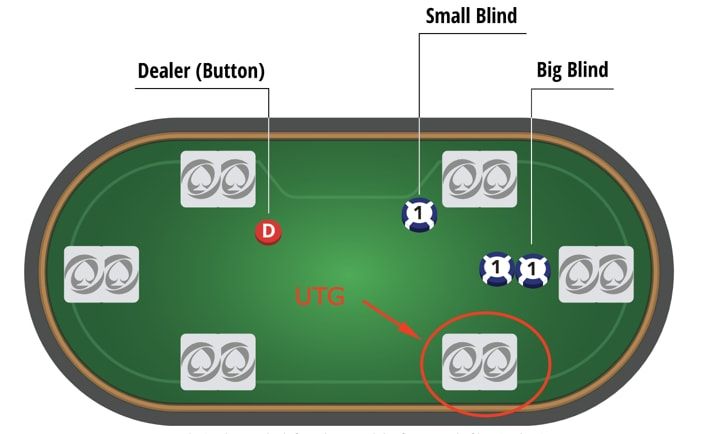Blinds exist in cash games to give players more incentive to play the hand in order to recoup the cost of paying the blinds, as well as to stoke the pot to give everybody an incentive to play more than just the very best hands. In tournament play, blinds also serve as a means to control the duration of the tournament and encourage more action.
- The Texas Hold'em blinds are usually more popular in structured limit games. In this structure, such as the $2/$4 or $3/$6 limit hold'em, the blinds are comprised of two bets made - the small and the big blind. The Texas Hold'em blinds start to the left of the dealer. So the flow would go as follows: dealer button, small blind, and then big.
- The ‘blinds’ are so called because players have to pay them before they see their cards. They are not optional if you want to join a poker game, and not to be confused with antes. Antes are also a compulsory bet paid by players before their cards are dealt in a tournament, but an ante is usually taken from everyone in every hand.
- In poker, the big blind is a mandatory payment that must be made by a player in the big blind position before any cards are dealt. In the majority of games, the big blind is twice the size of the small blind.

If you’re playing in a cash game that’s capped, but is described as offering full buy-ins, you may be playing under the “100 BB” (Big Blind) rule. As an example, 100 big blinds in a $1/$2 game is $200, which is often the maximum allowed in this type of game. (Certain games can feature maximum buy-ins of 30, 35 or 40 big blinds, and these are generally referred to as “short stack” games.) For general purposes this article is for cash games. Please see our article for the 10 bb rule in tournaments.
The 100 BB Importance


What’s so important about the 100 big-blind level, and how did it come to be? First, it’s easy math, and cashiers and chip runners like their jobs to be easy as possible. Second, and more importantly, a game featuring full buy-ins allows for the full gamut of strategy of no-limit poker to come into play. 100-BB cash-game poker is the complete game, allowing for bluffs, finesses, re-steals, squeezes, traps, and all the other bits and pieces that make poker such a dynamic game to play.

Keep it at This Amount
Because of this, many experienced players reload for another 100 BB in chips any time their chip stack falls below this level. Experienced, versatile (and properly-bankrolled) players perform at their best when they have lots of chips to work with, and at all times they can only win as much from another single player as the amount of chips their own stacks hold. The shortest stack at any given table has the least to lose… but he also has the least to win.
Another way to think of it is like this: If you are better than your opponents, you want to be able to win as many of their chips as possible. Because of this, you want to have all or many of them outchipped at any given time. We’ll ignore the opposite for the most part and just note that if you’re not better than most of your opponents, you’re sitting at the wrong table.

Rule of thumb, Time to Rebuy
The 100-BB rule, therefore, is simply a general reminder to good players that it might be time to rebuy and get some more chips into play. Maybe you’ve taken a bad beat, or two, or three, but if you can avoid tilt and you know your opponents are worse than you, remember that the cards themselves have no memory.
And go ahead and reload – another 100 BB’s should do the trick.
What Is The Meaning Of Blinds In Poker Tournaments
Author:Joseph Falchetti (twitter)
(C) Copyright PokerWebsites.com, 2018